Op-Ed: Why We Marched
Op-Ed: Why We Marched
On January 21st, over 50 Vanderbilt medical students donned their white coats and pink hats and joined Power Together Tennessee’s Nashville march and rally held in solidarity with the Women’s March on Washington. The goal of the march was to “send a bold message to our new administration on their first day in office, and to the world, that women’s rights are human rights.” The march also aimed to be intersectional, demanding respect for immigrants, LGBTQIA rights, racial justice, and access to health care.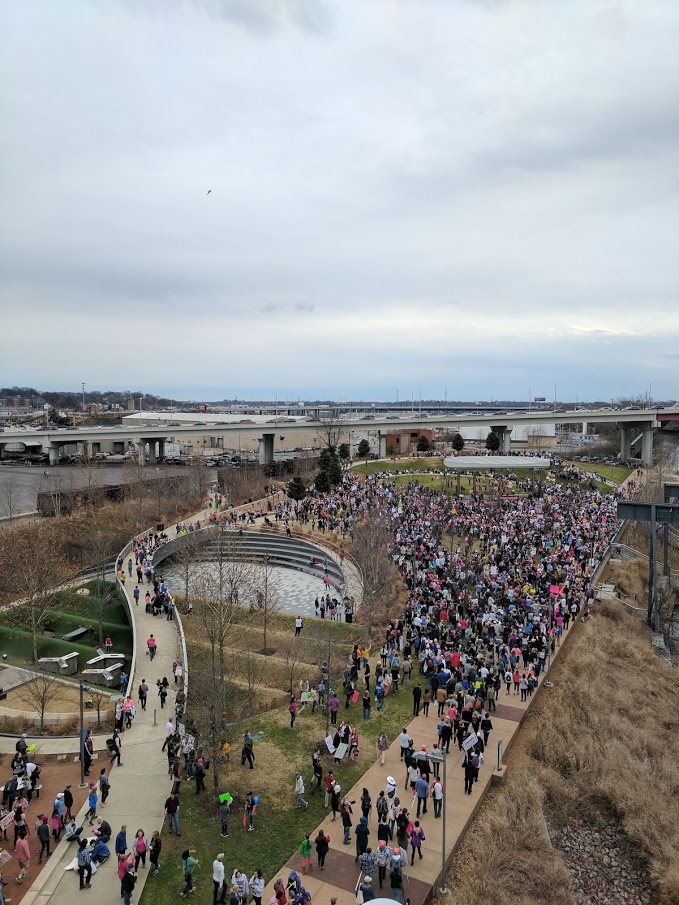
Chanting, “This is what democracy looks like!” protesters marched from Cumberland Park across the John Seigenthaler Bridge, over the Cumberland River, and through downtown Nashville. The march culminated in a rally held in Nashville’s Public Square hosting speakers representing organizations that advocate for numerous causes affecting women from all backgrounds. Speakers advocated for reproductive rights and living wages, de-stigmatization of abortion, and intersectionality, which means that fighting for women is incomplete if it does not include women of all races, religions, nationalities, sexual orientations, ages, and backgrounds.
The organizers of the March in Nashville were expecting about 7,000 protesters, but over 15,000 people turned out for the event. In Washington D.C., the epicenter of the movement, the Women’s March was estimated to draw at least 470,000. In total, there were over 500 total marches across the country with an estimated 3.3 million participants, with political scientists suggesting that this could be the largest demonstration ever in the United States. Worldwide, marches were recorded on all seven continents, including Antarctica.
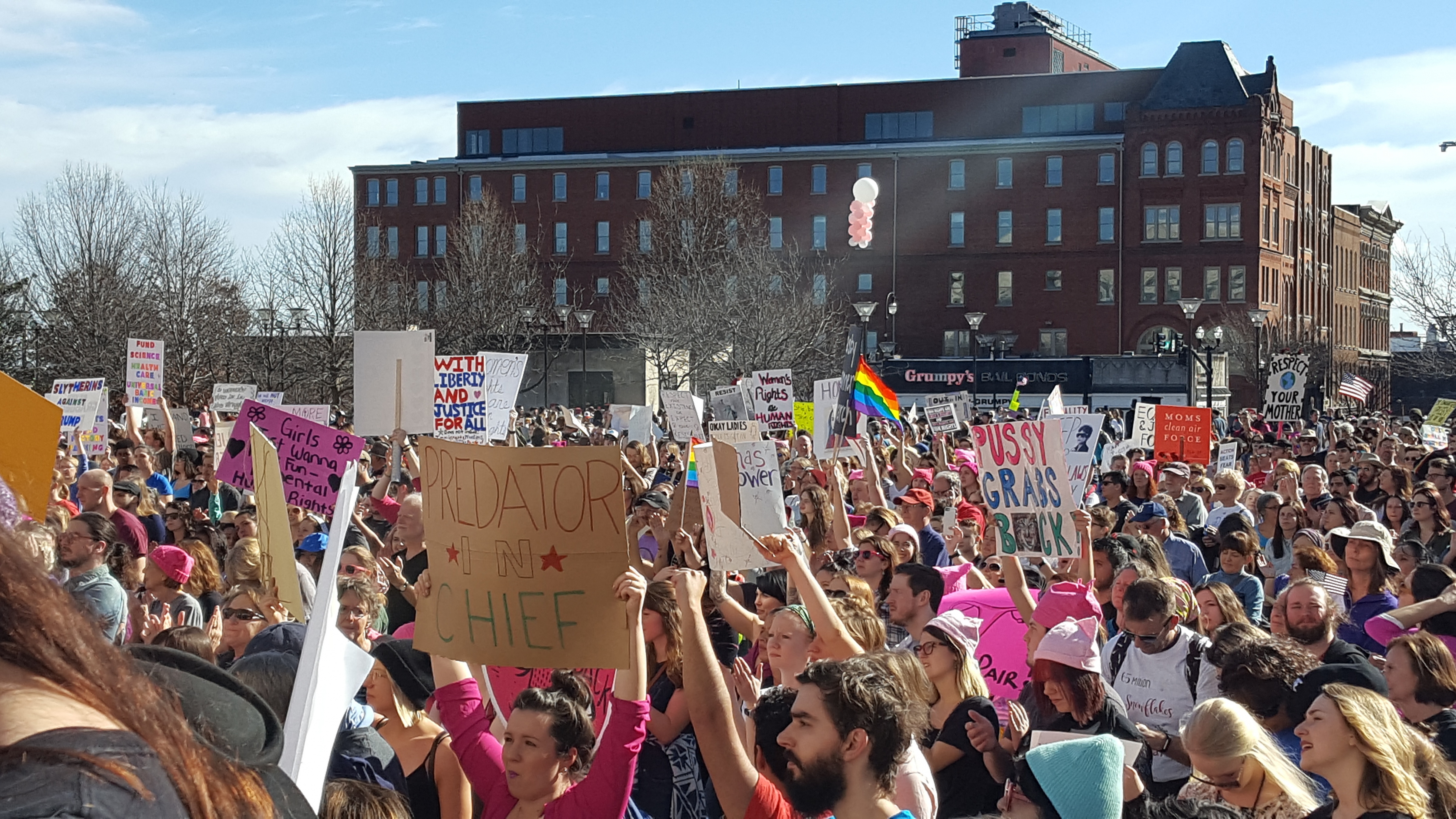 Of course, Power Together Tennessee’s Nashville march was just the first step in advocating for the protection of civil rights. The event connected many people looking for ways to get involved with local and national organizations looking for members. If you would like to get involved in these groups and other events, please see below.
Of course, Power Together Tennessee’s Nashville march was just the first step in advocating for the protection of civil rights. The event connected many people looking for ways to get involved with local and national organizations looking for members. If you would like to get involved in these groups and other events, please see below.
Here are some of the reasons why we marched:
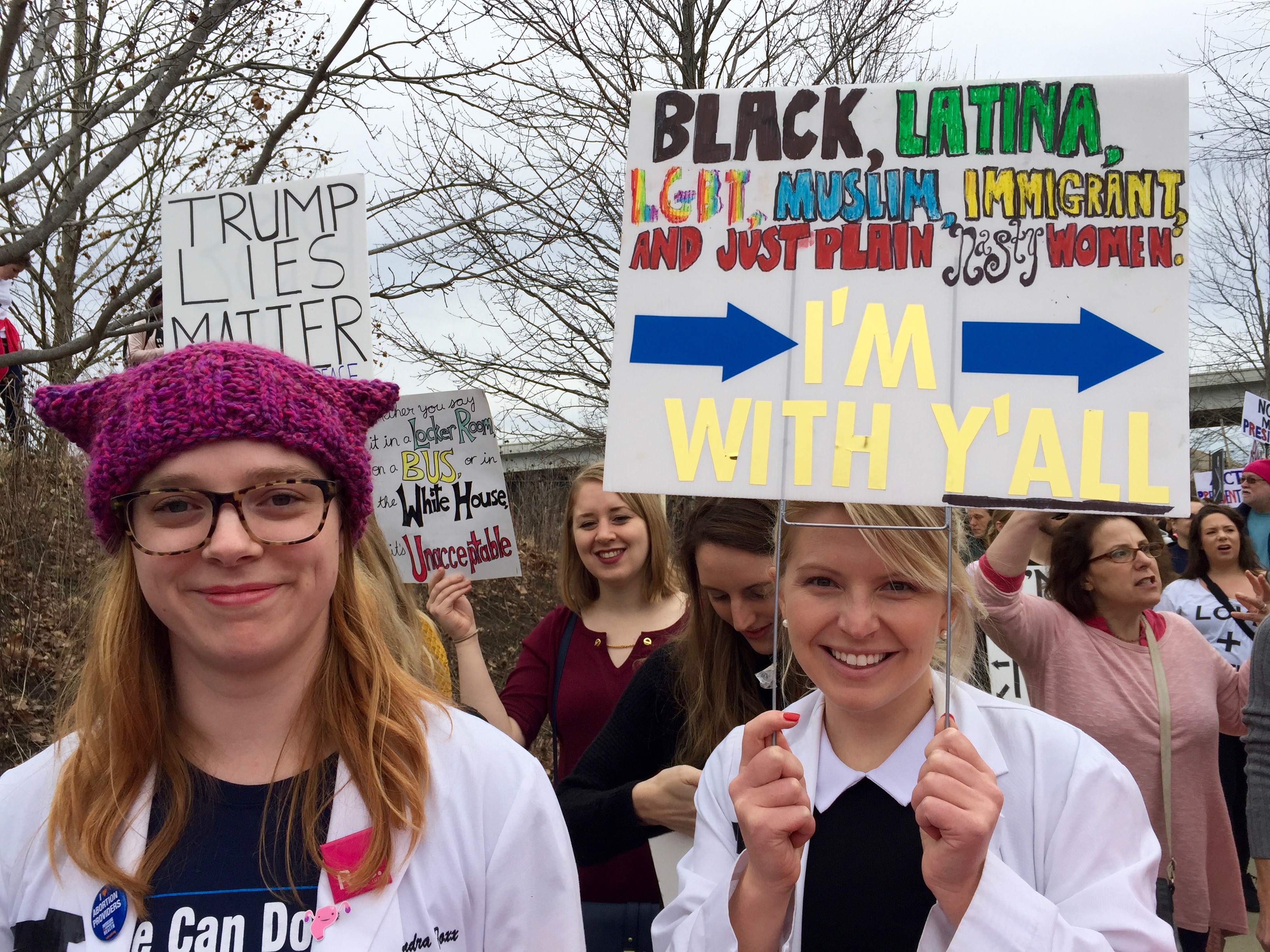 “It was absolutely incredible to have so many medical students show up early on a Saturday morning to march for what they believe in. Even more students sent e-mails or texts expressing support, but were unable to attend due to clinical duties. I was so humbled to be able to march with such incredibly passionate and compassionate colleagues. It's important that medical students be involved in the fight for civil rights, for LGBTQIA rights, for women's rights, for the environment, for health care, etc. because all these things contribute to the health of our community. I felt that it was important for us as a medical community to stand with our patients on the issues that affect all of our lives and health. And I hope we were able to show the community that its health professionals care and show up for them.” – Alexandra Foxx, VMS4
“It was absolutely incredible to have so many medical students show up early on a Saturday morning to march for what they believe in. Even more students sent e-mails or texts expressing support, but were unable to attend due to clinical duties. I was so humbled to be able to march with such incredibly passionate and compassionate colleagues. It's important that medical students be involved in the fight for civil rights, for LGBTQIA rights, for women's rights, for the environment, for health care, etc. because all these things contribute to the health of our community. I felt that it was important for us as a medical community to stand with our patients on the issues that affect all of our lives and health. And I hope we were able to show the community that its health professionals care and show up for them.” – Alexandra Foxx, VMS4
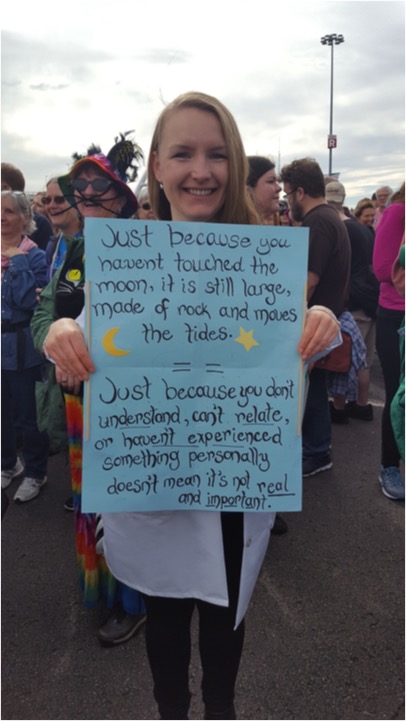
“I marched because I think we have a voice and a responsibility as doctors and scientists to maintain access to evidence-based treatments and health care in this country, to all people. Studies have proven over and over that women’s reproductive rights are foundational to a healthy and successful society.” – Merla Hubler, MSTP G4
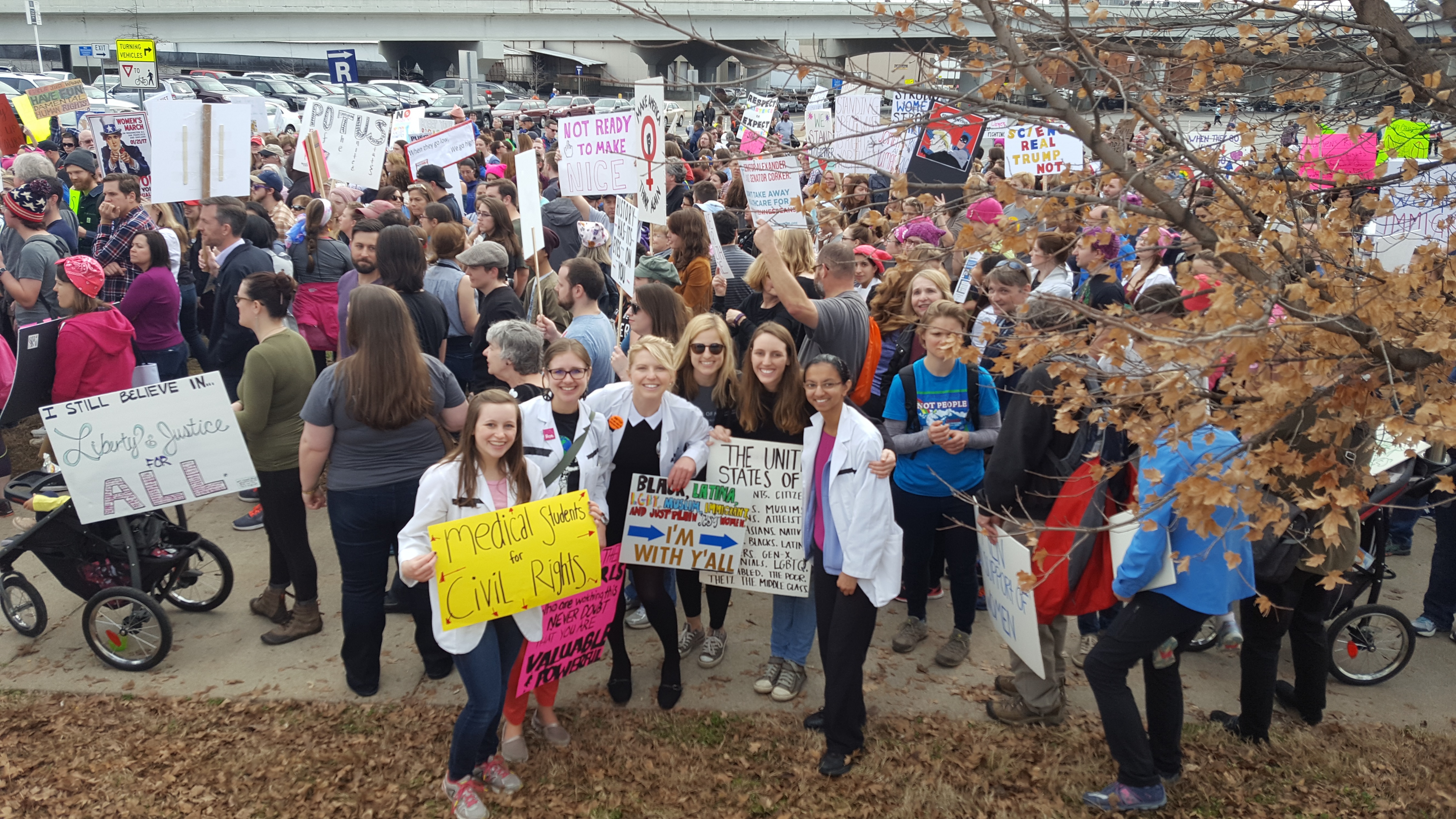
“I marched for my patients – because women deserve to have affordable and accessible reproductive health care resources and choices. I marched for survivors of sexual assault – because women shouldn't have to live in fear. I marched for labor laws including maternity leave, access to affordable child care, and minimum wage – because these issues affect women and single mothers disproportionately. I marched for women in medicine – because gender-based discrimination is a daily reality for many female physicians. I marched for little girls – because they need to see that they are supported and valuable and will one day break the highest glass ceilings that still exist. I marched for LGBTQ people, religious minorities, racial minorities, and the disabled – because I believe that America's civil liberties should extend to all.” – Aubri Charnigo, VMS4
“Seeing the rights of others—women, minorities, etc.—so boldly threatened by President Trump has been unnerving. Sitting on the sidelines, critiquing but not acting, was woefully insufficient. This was an opportunity to say something that I so firmly believe—that we’re all better off when each of us is better off. That’s why I marched.” – Matthew Stier, MSTP G4
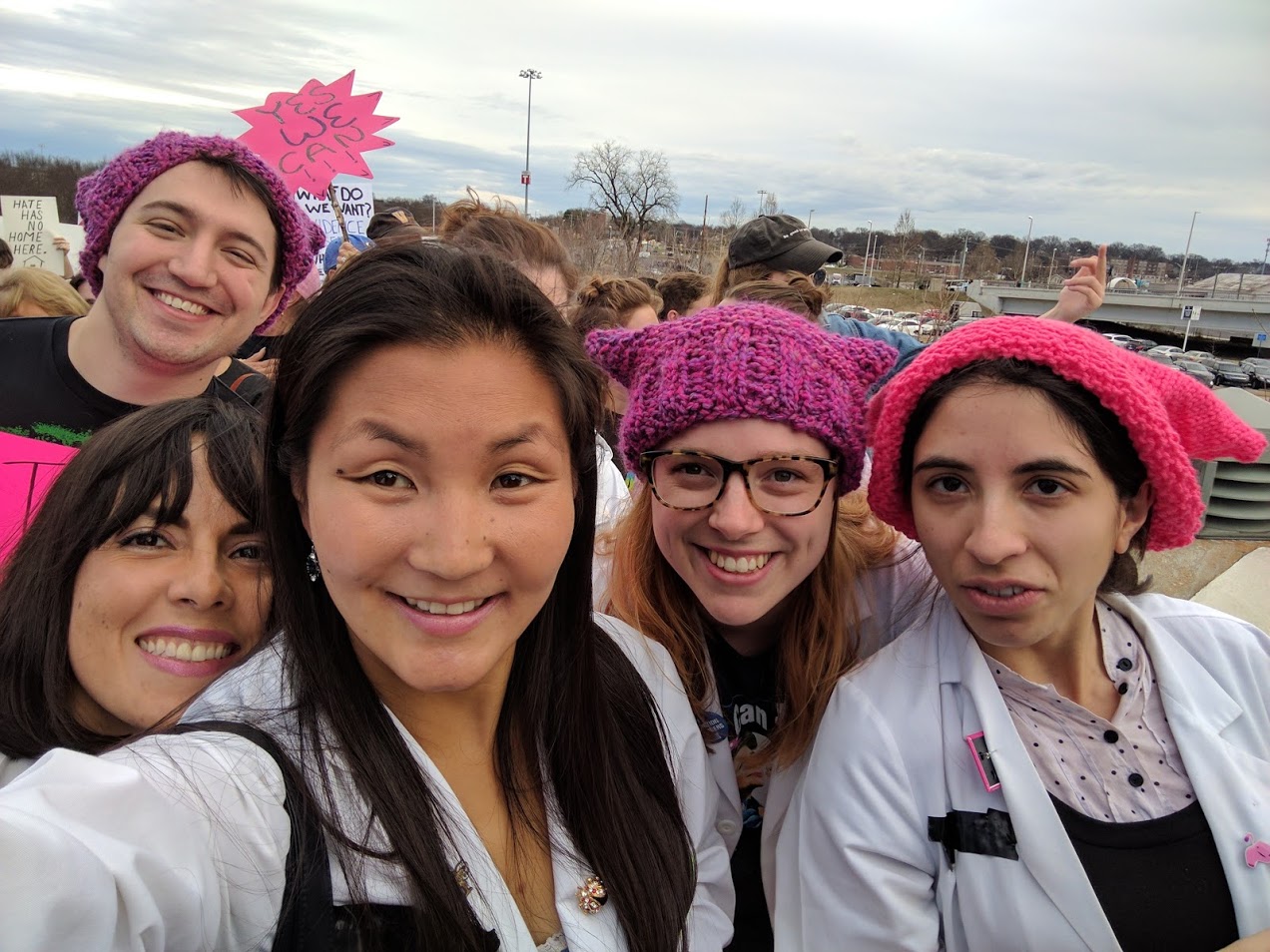 “I marched both as a woman and as a future women's health care provider. I believe all women have a right to reproductive health care and the right to choose what is best for themselves and their lives. I have personally seen the tremendous benefit that increasing health care access has had on the lives of my patients. I hope by marching to have increased awareness of this great need and to have increased the conversation around advancing both women's and truly all people's health care.” – Emily Buttigieg, VMS4
“I marched both as a woman and as a future women's health care provider. I believe all women have a right to reproductive health care and the right to choose what is best for themselves and their lives. I have personally seen the tremendous benefit that increasing health care access has had on the lives of my patients. I hope by marching to have increased awareness of this great need and to have increased the conversation around advancing both women's and truly all people's health care.” – Emily Buttigieg, VMS4
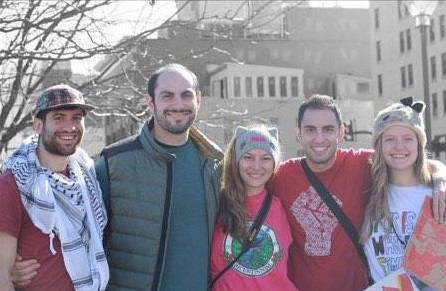
“I marched because contraception and abortion are necessary components of health care, and they are services that are threatened by the current administration.” – Shervin Etemad, VMS2
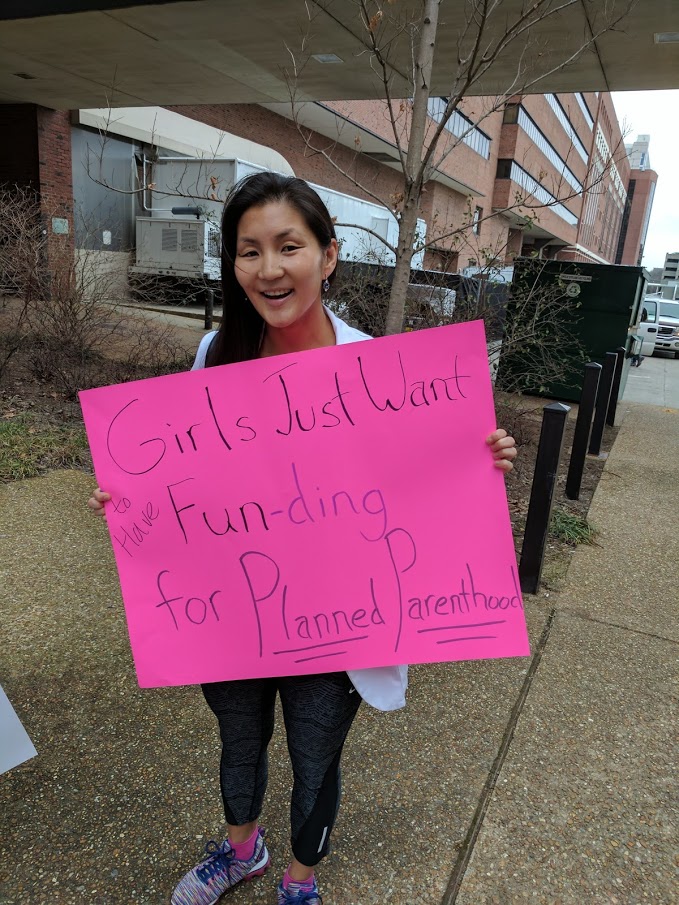 “What impelled me to march was, in part, reactionary to the recent political upheaval. But it was also the belief that great strides still need to be made to promote equality and equal opportunities, regardless of gender. It was inspiring to march with fellow medical students and Nashvillians and to feel the surrounding energy expressing, ‘yes, women can be strong, intelligent, and independent, and we deserve the justice, health care, recognition, etc. that we are still fighting for.’ – Eileen Shiuan, MSTP G2
“What impelled me to march was, in part, reactionary to the recent political upheaval. But it was also the belief that great strides still need to be made to promote equality and equal opportunities, regardless of gender. It was inspiring to march with fellow medical students and Nashvillians and to feel the surrounding energy expressing, ‘yes, women can be strong, intelligent, and independent, and we deserve the justice, health care, recognition, etc. that we are still fighting for.’ – Eileen Shiuan, MSTP G2
"I marched to say to the 160 million women of this country that I will not silently assent to chauvinism as a man calls you a ‘dog’ or a ‘pig.’ I marched to say that I will not turn my cheek when a man shames you for your body of any size, calling you a ‘bimbo’ or a ‘fat, ugly slob.’ I marched to say that a man who degrades a woman does not represent me. I marched to say that a man who calls his wife ‘that’ does not know the same love I know. I marched to say that I will not stand idly by as a man ‘grabs [you] by the pu**y’ or a husband opines that ‘putting a wife to work is a dangerous thing’. We marched to say that we are done being a public that implicitly and explicitly endorses the dismissal of women as workers, as producers and owners of goods, and as humans. I marched to say that I am a man, and I refuse to stand aside and watch you fight, because I must stand with you. We marched to show the women of this country, and each other, that you are not alone. – Michael Raddatz, VMS2
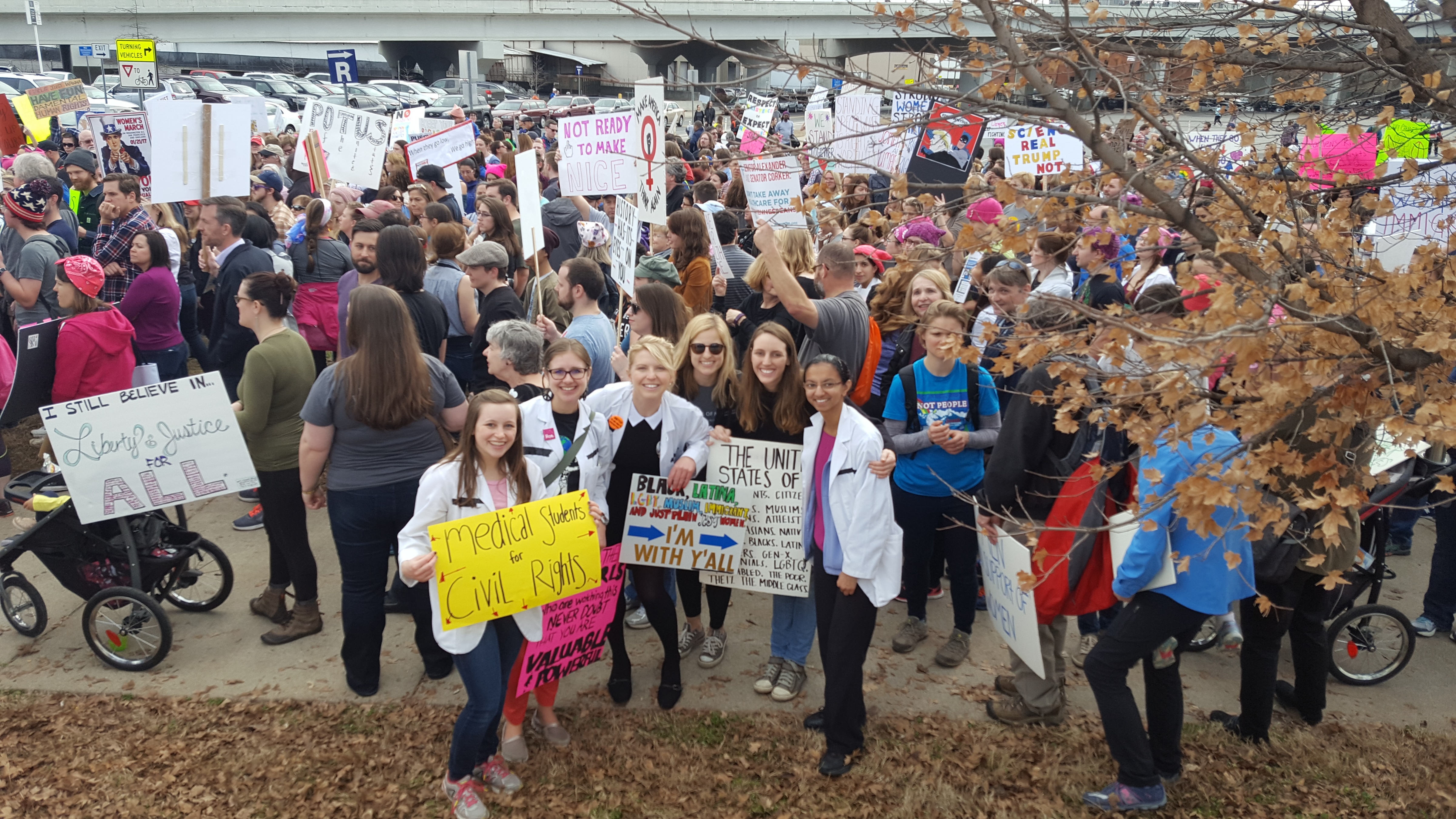 “My father, an endocrinologist in southern Virginia, is a quiet, reserved man. When I was a teenager, I was surprised to realize that through kindness and devotion to his patients and thoughtful, strategic civic involvement, he had been a steadfast advocate for the civil rights of racial minorities and the LGBT community since the 1960s. Today, he remains the only physician to provide medical treatment for transitioning transgender individuals in a several-hundred-mile radius. It is in his spirit that I chose to get involved with the school’s participation in the march. I did not march with the intent to denigrate those with opposing views or specifically insult the President. Instead, I marched to publicly demonstrate that through both service in the medical profession and thoughtful civic involvement, I have committed to resolutely support progress in civil rights for the entirety of my career.” – Jessica Burris, VMS2
“My father, an endocrinologist in southern Virginia, is a quiet, reserved man. When I was a teenager, I was surprised to realize that through kindness and devotion to his patients and thoughtful, strategic civic involvement, he had been a steadfast advocate for the civil rights of racial minorities and the LGBT community since the 1960s. Today, he remains the only physician to provide medical treatment for transitioning transgender individuals in a several-hundred-mile radius. It is in his spirit that I chose to get involved with the school’s participation in the march. I did not march with the intent to denigrate those with opposing views or specifically insult the President. Instead, I marched to publicly demonstrate that through both service in the medical profession and thoughtful civic involvement, I have committed to resolutely support progress in civil rights for the entirety of my career.” – Jessica Burris, VMS2
 “I marched to combat political ideologies founded in bigotry and expressed with hatred; to express my belief in the human right to safe, effective, and affordable health care; and to lend my voice to the voiceless, that they may be heard.” – Kevin Graepel, MSTP G2
“I marched to combat political ideologies founded in bigotry and expressed with hatred; to express my belief in the human right to safe, effective, and affordable health care; and to lend my voice to the voiceless, that they may be heard.” – Kevin Graepel, MSTP G2
“Students for a National Health Program (SNaHP) got a notice about this march from the Physicians for a National Health Program (PNHP) President, Dr. Carol Paris, who actually lives in Nashville but was marching in D.C. Under a Medicare for All System (the preferred solution of PNHP), women and marginalized groups would face far fewer issues with accessing needed health care, so the march was naturally something we were hoping to promote. Since last year, we had been looking to collaborate on an event with Medical Students for Choice (MSFC), and I am especially happy that it turned out to be this event, which was so deeply meaningful to many participants. The Council of Class Officers also chose to support the effort by paying for students to travel to the march. It certainly sends a strong message that activism and engagement should rank highly among the many priorities of medical students.” – Monisha Bhatia, VMS3
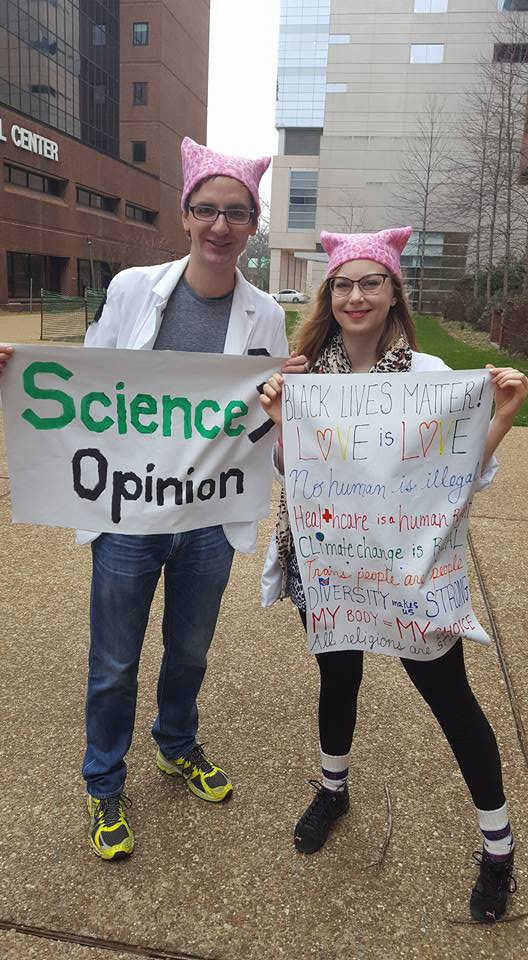 “I marched wearing a pink hat that my mom (a bona fide ‘nasty woman’) sewed while preparing for to the Women’s March on Washington. I marched because President Trump himself has a documented history of making incredibly degrading remarks about women and has been accused numerous times of sexually assaulting women. The current administration wants to restrict access to health care and reproductive rights, promote racially biased policing tactics, ban the immigration of Muslim families, and remove protections and equality for LGBTQIA individuals. These discriminatory policies are already being implemented during the new administration’s first two weeks in office. Furthermore, as an aspiring physician-scientist, I am concerned about the Trump administration’s misunderstanding of the word ‘fact,’ complete disregard for scientific evidence, and attempts to restrict government-employed scientists from communicating with the public. I marched because the people in our country and the world deserve so much better. I’m done being complacent, and I’m going to be a better intersectional feminist.” – Rachel Brown, MSTP M2
“I marched wearing a pink hat that my mom (a bona fide ‘nasty woman’) sewed while preparing for to the Women’s March on Washington. I marched because President Trump himself has a documented history of making incredibly degrading remarks about women and has been accused numerous times of sexually assaulting women. The current administration wants to restrict access to health care and reproductive rights, promote racially biased policing tactics, ban the immigration of Muslim families, and remove protections and equality for LGBTQIA individuals. These discriminatory policies are already being implemented during the new administration’s first two weeks in office. Furthermore, as an aspiring physician-scientist, I am concerned about the Trump administration’s misunderstanding of the word ‘fact,’ complete disregard for scientific evidence, and attempts to restrict government-employed scientists from communicating with the public. I marched because the people in our country and the world deserve so much better. I’m done being complacent, and I’m going to be a better intersectional feminist.” – Rachel Brown, MSTP M2
“President Trump’s actions should not be normalized. He is a demagogue with a litany of ethical conflicts, an antagonistic relationship with the truth, and little regard for the Constitution. Sadly, this new President has shown disdain for any group that he can paint as outsiders. His disregard for the most vulnerable among us is the antithesis of what the United States of America should exemplify. His appointees, both foreign and domestic, appear to require little more for nomination than scorn for their future organization and anything that falls within its purview. The Republicans seem to have little ability to hold Trump accountable and Democrats have been notoriously absent during midterm elections. My aspiration is that marches like this one will galvanize engagement long enough to shift congressional power away from the current appeasement. The next four years will likely be a relentless attack on the ideas that make America a beacon of hope for so many around the world. It is up to us to protect that hope. I marched to protect that hope.” – Joseph Luchsinger, MSTP G1
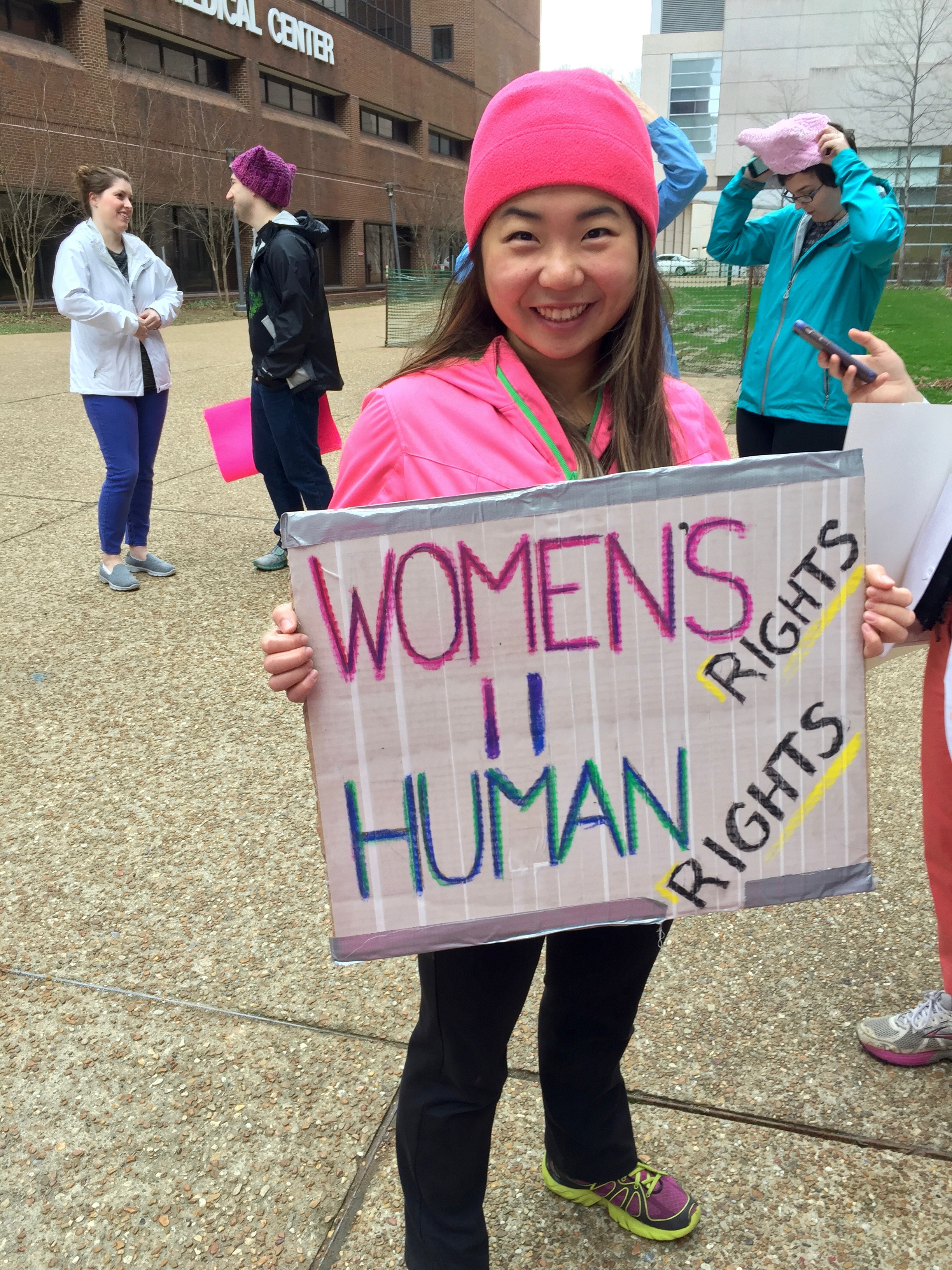 If you are interested in learning more about the organizations represented at the March or identifying ways to get involved, please see the resources below.
If you are interested in learning more about the organizations represented at the March or identifying ways to get involved, please see the resources below.
Medical Student Groups:
Organizations Represented at Power Together Tennessee:
- Healthy and Free Tennessee
- Tennessee Healthcare Campaign
- Gideon’s Army
- Tennessee Immigrant & Refugee Rights Coalition
- Mijente
- Project Return
- Nashville Feminist Collective
- Homes4All Nashville
- Tennessee Transgender Political Coalition
- Tennessee Advocates for Planned Parenthood
- National Women’s Liberation Women of Color Caucus
- American Muslim Advisory Council
- Women for Tennessee’s Future
- Open Table Nashville
- Planned Parenthood of Middle and East Tennessee
- Tennessee Stories Project
March for Science:
Upcoming Events in Nashville:
- We All Belong Vigil and Rally (February 1st)
- The Executive Order on Immigration: Legal and Policy Issues (February 2nd)
- Advancing Equality Days on the Hill (February 7th, March 7th, April 4th)
Additionally, text “Daily” to 228466 to receive Daily Action Mobile Updates, including how to contact your legislative representatives. (Advertised at the No Ban, No Wall protest in front of Senator Bob Corker’s West End office on Sunday, January 29th.)
Disclaimer: The viewpoints expressed by the authors do not necessarily reflect the opinions, viewpoints and official policies of Vanderbilt University.